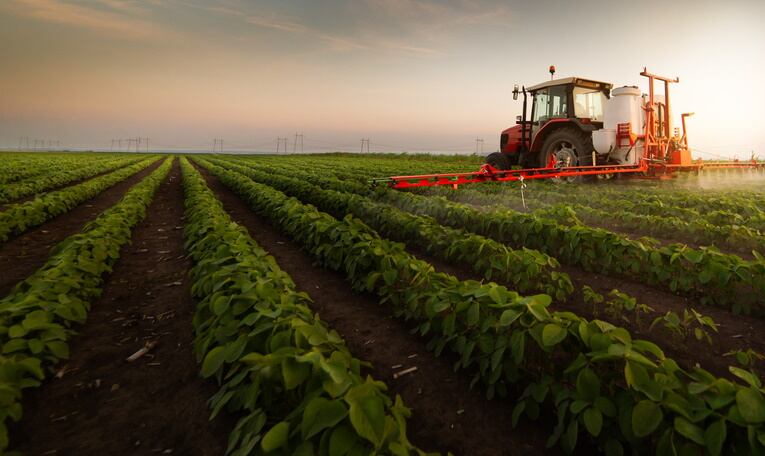The European Union has a legally binding net zero emissions target by 2050. Through the Green Deal and Farm to Fork strategy, the Commission has set out further details of its ambitions in agri-food. The EC wants a 50% reduction in the use of pesticides; ‘at least’ 20% reduction in the use of fertilisers; 50% reduction in sales of antimicrobials used for farmed animals; and 25% of agricultural land to be used for organic farming.
“The current food system from farm-to-fork faces multiple challenges,” Nathalie Sauze-Vandevyver Director of Quality, Research & Innovation, Outreach at Directorate General for Agriculture and Rural Development observed. “Business-as-usual is not an option.”
Challenges range from environmental sustainability, biodiversity and climate change to social impact, the viability of farms and diet related diseases, the R&I expert told the EU40 online event, Innovation: A buzzword or crucial tool for increasing sustainability in the food chain?
Food systems change is a ‘key priority’ for Europe, as evidenced by the Green Deal and CAP reform, she suggested. “All actors are to be involved and to adapt their practices. Research and innovation is a key enabler to help them… Until 2030 we have nine growing seasons, so we have to do something quick to reach the targets of the Green Deal,” Sauze-Vandevyver argued.
The need for speed
‘Doing something quick’ is not an attribute always associated with European regulators.
Speaking at the event, Garlich von Essen represented the Agri-Food Chain Coalition(AFCC), comprising EU-level associations from agricultural input industries – from farmers to trade and food production. According to his assessment, European regulatory apparatus often lack the flexibility necessary to support fast-paced innovation.

“We need to go faster. We take much too long in Europe to make choices…. Looking at the precautionary principle, it means to look left and right before crossing the street. It doesn’t mean you spend all day looking left and right and never cross the street.”
Garlich stressed that Europe needs to establish targets and technologies that it wants to support within its regulatory framework and make sure the political landscape doesn’t change before farmers and processors are able to see a return on the capital they are expected to invest. This, he stressed, risks losing the trust of food producers.
“There is no shortage of targets in political discussions today. There is a new target presented every week… Targets may represent ambitions but they don’t mean anything in practice. They need to be enacted. This is where innovation plays a role,” he told his digital audience.
Innovation more than ‘just a buzzword’
Here, AFCC argues, innovation needs to be more than ‘just a buzzword’ – there must be clear mechanisms and legislative vehicles that concretely support innovation in the food chain.
The adoption of digital technology, precision farming or new approaches to irrigation all depend on infrastructure, such as 5G access, he noted. Meanwhile, the use of tools like drones for crop monitoring can be limited by regulatory constraints.
Garlich also stressed that a ‘reductionist’ approach to innovation – such as cutting fertiliser use – is not backed by AFCC and argued that to do so would hit European yields and force the bloc to rely more heavily on imports, essentially outsourcing the food system’s footprint.
“We see innovation as part of the solution. Rather than to look backwards and think ‘can we do with less inputs’ with regard to quantity and often quality. We risk having a discussion where less seems to dominate the agenda. Applying less fertiliser is not innovation per se.”

Responding on behalf of the EC, Sauze-Vandevyver insisted that targets are an important tool to develop a more sustainable food system. However, she also recognised the need for accelerated action.
“Targets are an ambition. We need ambition, we have to move. But… to achieve targets we have to have new tools, innovative practices. Stakeholders have to change practices; they need to be helped to achieve this.”
The limits of innovation: ‘You can’t farm green if your wallet is red’
Martijn Buijsse, founder of FarmUp and a candidate for the VDD in the Netherlands in 2021, stressed that ‘ambition is not equal to legislation’ and highlighted the importance that regulations and targets are substantiated with evidence that they are achievable at a farm level. Importantly, he emphasised, the development of sustainable agriculture in Europe also means the development of economically viable agriculture.
“You can’t farm green if your wallet is red,” he told the event. “If you aren’t profitable you can’t invest or get a loan from the bank.”
FarmUp is an ag-tech start-up born out of a request from ‘a group of small fruit farmers’ who wanted to make operational tasks more efficient.
Looking at the situation in his home region in the Netherlands, Buijsse painted a bleak outlook for the family farms the EC has given considerable lip-service to. “I only see big farms surviving. In my environment, all traditional family farmers are quitting. I see only the big farms surviving here because they have the capital and can get loans for investment. Traditional family-based farms will not manage.”

Like Garlich, Buijsse echoed the need to maintain stable targets. “You need to be as proactive as possible as politicians… We want bigger, faster, more. But we also need stability. We don’t want to be faced with changing targets in the payback period [after investments are made]. If you make a target you have to monitor what the effect is of your policy.”
Buijsse pointed to what he described as a ‘catastrophe’ of policy when regulators in the Netherlands targeted an 80% cut in ammonia emissions but backed new and innovative technology that – it later transpired – could only deliver a 40% reduction. While farmers invested, governmental targets were missed. “You can have targets, but it can also lead to catastrophe. Empty pockets, no results and a lot of distrust.”
For this reason, Buijsse is cautious about targets that rely on as-yet unsubstantiated or undeveloped innovation. “We are on a tipping point – we now count on innovation,” the ag tech entrepreneur observed. “It’s not without risk if you count on innovation to reach your target. Targets can lead to disappointment. Monitoring assessment is elementary when you rely on innovation and with strict targets you have to increase your ambition on the monitoring side.”

